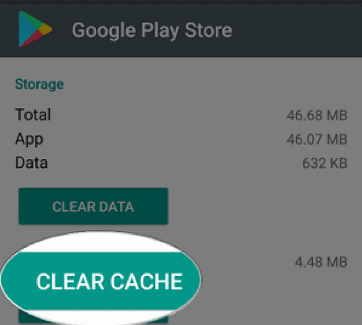Contents
A computer or mobile device stores information temporarily on the cache when you initially visit a website or open a new app. Internet browsers usually access the cache on the device and load information faster when you open the site again. The stored files are referred to as cached data. Caching allows you to have a smooth surfing experience without any downtime.
Apart from increasing the performance of your device, clearing cache will also mitigate external risks from hackers. It protects your private data from scammers who want to steal sensitive information, such as login and bank account details. Though there is no set time to clear the cache on your device, IT experts recommend after a few weeks or when you notice system irregularities.
While cached data provides an efficient online experience, you have to perform cache clearing once in a while. Clearing all the temporary files on your device causes the browser to save cache afresh from the server. Though storing cached data has its advantages, cache clearing is also essential. Read more about the top benefits of clearing cache at the right time.

Performance Enhancements
If you are a frequent online user, you will visit numerous websites, and your cache memory will build up over an extended period. The cached data will eventually cause your device to perform poorly because of low speeds when browsing online. It will get worse if you have a hard drive with small storage. Therefore, deleting cached data will delete all the temporary information, and your device will start functioning well since it increases performance. Though it is a short-term solution, you might notice a slight difference.
Updated Page Fetching
You might notice every time you visit a frequent website; it does not load new information. It takes you back to the page you previously visited. Since cached data remains in the device, usually, the browser will retrieve the old pages stored in the cache. It will open the newer updated pages since it relies on the stored data. However, if you practice regular cache clearing, chances are you will be viewing new pages with new updates. Deleting cached data ensures the Internet browser you are using fetches updated versions of from the site’s servers.
Security Threat Mitigation
Storing web files on your device is not always a good idea because you are attracting potential hackers. Today, online hacking is on the rise as many people fall prey to scammers who access your data without consent. Cached data might cause software vulnerabilities that allow hackers to steal your information and use it for illegal purposes. However, regular cache clearing deletes all the stored data and safeguards your privacy. If cached data is still available, unauthorized people can open your computer and view your browser history. Moreover, your device can be susceptible to malware and virus threats. Thus, it is essential to clear cache after to mitigate external security risks.

Browser Error Troubleshooting
Sometimes you can encounter browser slips when you are visiting certain websites. Many users are not aware that the cached data could be causing the errors. For instance, the website can load slowly, refuse to open, or prompt error messages. You can also experience hanging or unresponsive sites. Cache clearing can fix web browsers resulting in a seamless surfing experience.
User Experience Improvement
As mentioned above, cache clearing speeds up performance and causes faster loading times because stored data accumulates in the system over time. If you want to have a seamless experience, make sure you clear cache regularly to improve system performance. Please don’t wait for your device to start acting up to clear cache; make it a regular exercise and enjoy a smooth online experience.
Take Your Cache Data Seriously
Cached data builds up in the random access memory and affects device performance over an extended period since the cache occupies a small memory space. It is imperative to note that clearing cache does not delete crucial information that supports the browser system. The exercise only deletes the temporary data in the cache, and you get extra space for a while before cached files start piling up again. Moreover, advanced computer systems usually have an automatic cache-deleting feature that erases data after reaching a particular threshold or expiry parameters. Thus, make it a habit to clear cache regularly.

